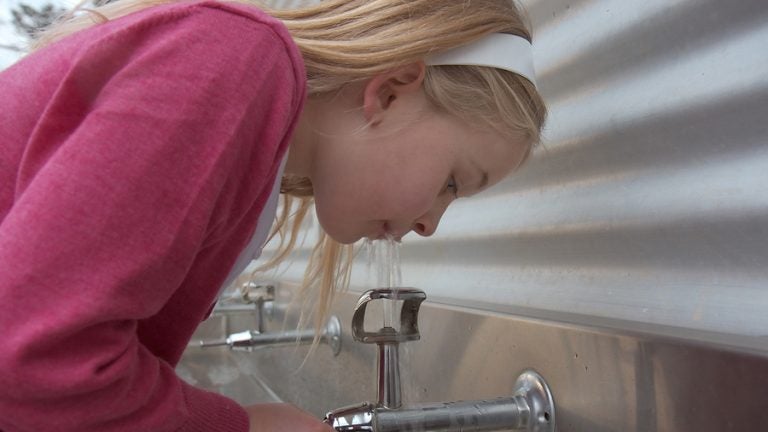Newark water problems raise the question: Should other school districts be tested in NJ?

(NewsWorks file photo)
With revelations of elevated lead levels in the water at half of Newark’s public schools in New Jersey, talk has moved quickly as to whether the state should test in other public schools across the state as well.
The state’s environmental commissioner, as well as the chairs of both the State Board of Education and the legislature’s Joint Committee on Public Schools all said this weekend that they would explore whether the state should extend requirements or even guidance to local districts.
“We clearly don’t want anything awful to happen, and this may be a wakeup call to at least look at our older buildings and make sure we are doing the right thing,” said Mark Biedron, president of the state board.
State Assemblywoman Mila Jasey (D-Essex), co-chair of the joint committee, is a registered nurse and said she saw the problem firsthand when she worked in East Orange as a public health nurse.
“It was a big problem then, and it hasn’t gone away,” she said.
Jasey stressed that she has heard the readings found in Newark are not at the dangerous levels found in Flint, MI, but nonetheless point to problems that could be in countless schools and need to be addressed before they worsen.
“There is no need to panic, but it clearly needs further investigation,” she said.
Many districts already do their own monitoring for lead or other contaminants, officials added. Some, like Camden, have been providing bottled water to students for years for fear of contaminated water.
But such testing is not required by either state or federal law, officials concede, and in the case of schools, there is no monitoring by the state as to who is doing what.
State education officials this weekend referred all questions to the New Jersey Department of Environmental Protection, which is taking the lead on the Newark case and would presumably press any statewide action.
The DEP’s spokesman said yesterday he could not comment yet as to whether statewide policy was being considered, but state Commissioner of Environmental Protection Bob Martin told “The Wall Street Journal” in its Saturday edition that the state had a “blind spot” concerning lead exposure via school drinking water that it needs to address.
“This is one of the gaps we realize now that we have,” Martin told the newspaper. “That’s why now we’re just trying to put the pieces together.”
The next steps are not likely to be immediate, however, as the administration is focusing first on Newark and resolving the health concerns in its schools.
The (Newark) schools will be retested again for lead in the upcoming days, officials said. In addition, the top 15 communities where high levels of lead have been found in children are having their school districts’ supplies tested, they noted last week.
Further, blood tests are being made available to families through the city’s health department.
State and local officials have yet to release data to whether there were earlier elevated readings in the schools, although a 2014 memo from the district’s administration had mandated that schools flush their faucets every day — and students run water fountains before they drink.
Biedron, the state board president, said as the state moves forward, past data and future strategies need to be made available to the public.
“We need to be totally transparent and open about this,” Biedron said. “We will definitely be talking about this at the next [board] meeting, that’s for sure. The question is just what do we do next.”
______________________________________________________________
NJ Spotlight, an independent online news service on issues critical to New Jersey, makes its in-depth reporting available to NewsWorks.
WHYY is your source for fact-based, in-depth journalism and information. As a nonprofit organization, we rely on financial support from readers like you. Please give today.




